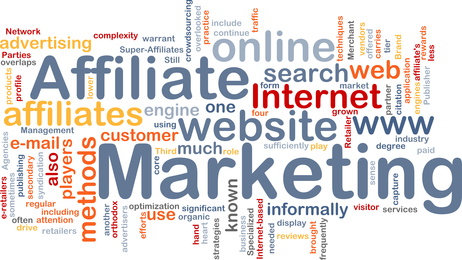Table of Contents
 The End of the Internet Marketing Cookie Trail
The End of the Internet Marketing Cookie Trail
Love them or hate them, Third-party cookies are on the decline, driven by growing privacy concerns and stricter regulations. Consumers are demanding more control over their data, and regulators are listening.
This “cookieless future” might seem like a hurdle, but it’s a chance to ditch intrusive tactics and forge stronger bonds with your audience.
Building Bridges, Not Walls
So how do we navigate this cookieless landscape? The answer lies in a fundamental shift in approach. Move away from chasing scattered user data and focus on building trust with your target audience.
- Create high-quality, informative content that educates and entertains your audience. Attract them with valuable insights, not creepy tracking.
- Be upfront about the data you collect and how you use it. Offer clear opt-in options and empower users to control their information.
- Use the data you do have (website behavior, email signups, purchase history) to personalize your marketing messages. This fosters a sense of connection and increases engagement.
First-Party Data: The New Gold Standard
Instead of relying on external trackers, prioritize collecting valuable first-party data directly from your audience.
- Collect information through website forms, surveys, polls, and interactive content. Offer incentives for users to share their preferences and interests willingly.
- Use the data you’ve gathered to segment your audience and personalize your marketing efforts. This could be targeted email campaigns, website content recommendations, or social media advertising.
- Consider investing in a Customer Data Platform to centralize and manage all your customer data. This allows you to create a unified customer profile and gain a deeper understanding of your audience.
Beyond the Cookie: Alternative Targeting Strategies
The “cookieless future” is definitely a challenge for internet marketers, but it also presents an opportunity to focus on more sustainable and effective marketing strategies. Here are some ways marketers can adapt.
Building Strong Customer Relationships
Focus on Value – Move away from intrusive ad tracking and focus on creating valuable content that attracts and educates your target audience.
Personalization – Use the data you do have (website behavior, email signups, purchase history) to personalize your marketing messages and offers. This makes them more relevant and increases engagement.
Loyalty Programs – Reward repeat customers and incentivize them to share their data willingly. Offer exclusive discounts, early access to new products, or personalized recommendations.
Community Building – Foster a sense of community around your brand. Encourage user-generated content, host contests, and respond to comments and messages. This builds trust and loyalty.
Alternative Targeting Strategies
Contextual Targeting – Serve ads based on the content of a webpage rather than user behavior. This ensures your ads are relevant to the user’s current browsing session.
Focus on Search Engine Optimization (SEO) – Optimize your website content for relevant keywords to improve organic search ranking. This allows you to reach potential customers who are actively searching for products or services like yours.
Leverage Social Media Marketing – Build a strong presence on social media platforms and utilize their targeting options based on demographics and interests. Engage with your audience and use social listening tools to understand their needs and preferences.
Embrace New Technologies
Customer Relationship Management (CRM) Systems – Use a CRM to track customer interactions, manage sales leads, and personalize your outreach efforts.
Marketing Automation Platforms – Automate repetitive tasks like email marketing, social media posting, and lead nurturing. This frees up your time to focus on strategic initiatives.
The cookieless future is not a cause for panic, but a call to action. By prioritizing user privacy, building trust, and collecting valuable first-party data, you can create a sustainable and successful marketing strategy.
By providing value, collecting valuable first-party data, and implementing alternative targeting strategies, you can ensure your marketing efforts remain effective and achieve long-term success.
This new era is brimming with potential for deeper connections, more meaningful interactions, and a future where marketing goes beyond chasing elusive user data and focuses on creating genuine value for your audience. Welcome to the age of authentic marketing – are you ready to embrace it?
Need more help navigating the cookieless world of online marketing? Here are five articles from expert sources that discuss marketing without cookies:
Cookieless Attribution: Marketing Without Cookies by Neil Patel (https://neilpatel.com/blog/marketing-without-cookies/)
This article by SEO and marketing expert Neil Patel dives into the concept of cookieless attribution and different techniques marketers can use to track conversions without relying on third-party cookies.
The Ultimate Guide to Advertising Without Third-Party Cookie by Nativo (https://www.nativo.com/newsroom/third-party-cookies-guide)
Nativo, a provider of programmatic advertising solutions, offers a comprehensive guide on advertising strategies that don’t depend on third-party cookies. This article explores contextual targeting, cookieless audience segments, and leveraging first-party data.
Marketing Without Third Party Cookies by Healthlaunchpad (https://econsultancy.com/cookie-deprecation-pharma-marketing/)
Healthlaunchpad, a digital marketing agency specializing in the healthcare industry, provides a practical approach to marketing without third-party cookies. They discuss strategies like building a strong email list, leveraging website analytics data, and focusing on first-party data collection.
How Can Advertisers Navigate Further Without Cookies? by Forbes (https://www.forbes.com/sites/forbestechcouncil/2023/05/02/how-can-advertisers-navigate-further-without-cookies/)
This Forbes article features insights from marketing experts on how advertisers can adapt to the cookieless future. The piece explores the potential of solutions like contextual targeting, privacy-preserving measurement techniques, and leveraging first-party data partnerships.
A Marketer’s Guide to Navigating A Cookieless Future by McKinsey & Company (https://www.mckinsey.com/capabilities/growth-marketing-and-sales/our-insights/as-the-cookie-crumbles-three-strategies-for-advertisers-to-thrive)
Management consulting firm McKinsey & Company offers a strategic perspective on navigating the cookieless future. Their article explores the challenges and opportunities presented by this shift, emphasizing the importance of building customer trust, focusing on first-party data, and embracing new marketing technologies.












